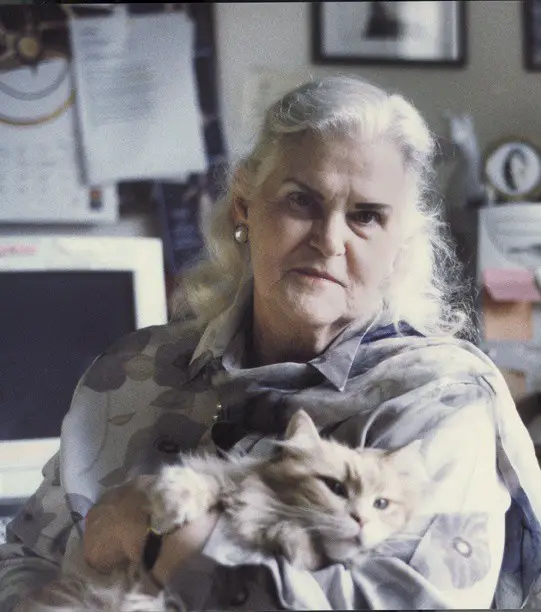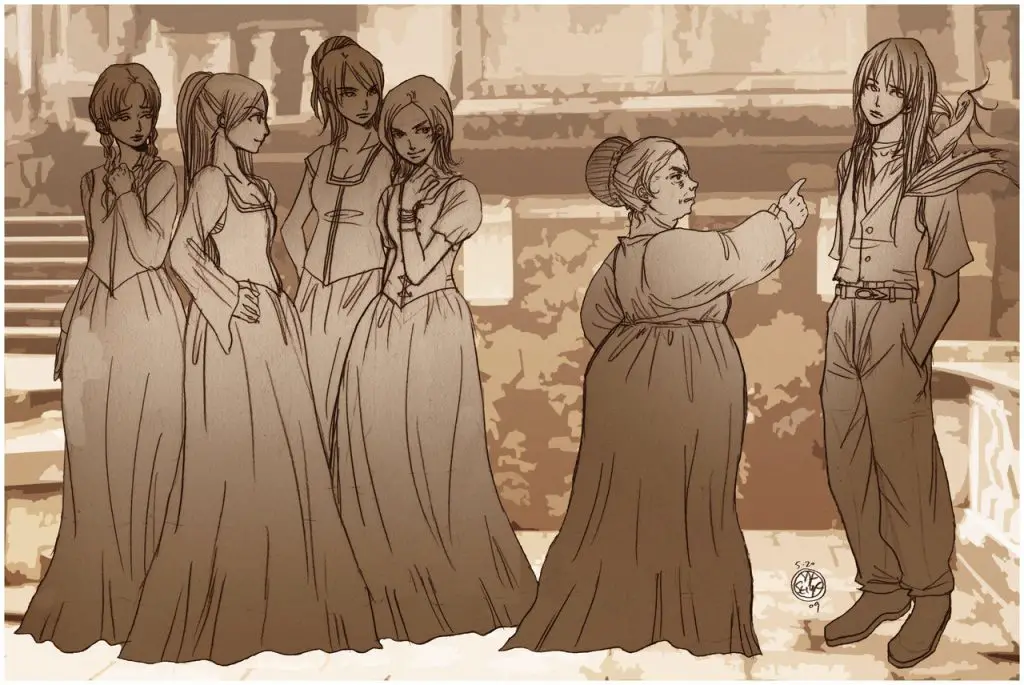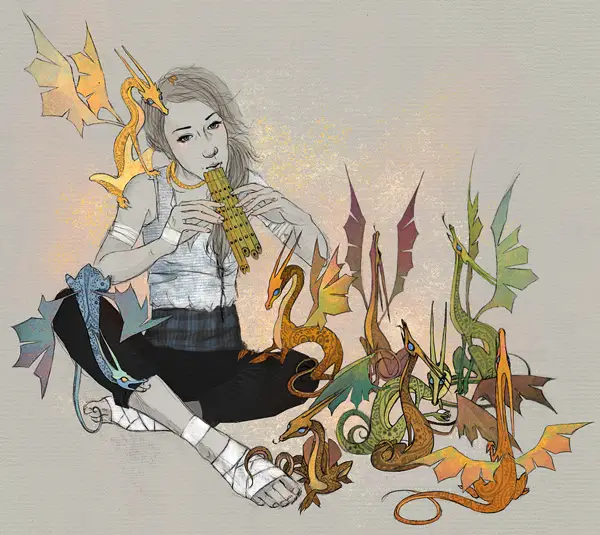The Equal Rights Amendment of the ‘70s sparked a wave of feminist literature in the United States. Among some of the best of these books, Anne McCaffrey’s “The Harper Hall of Pern” trilogy follows the story of Menolly, a girl from another planet, as she learns about freedom, equality and healthy relationships.
A brief synopsis for background: Young Menolly lives in a backward home. Her father, the leader of her town, strictly forbids her from her deepest passion: making music. It’s a man’s place to play and compose, not a woman’s.
She cooks and cleans under the watch of her strict family. When she accidentally cuts herself while gutting greasy fish, they let the injury heal incorrectly to indefinitely deprive her of the ability to play music. The abuse and injustice sting her.
As much as Menolly wishes she could run away, the sky itself harbors a threat: burning, burrowing, organic-matter-eating alien spores called the Thread. They come like rain to feast on the planet.

But that’s perfectly normal for the world of Pern, which has bred friendly dragons to burn the Thread as they fall.
In addition, smaller cousins of the dragon, called fire lizards, also have the capacity to bond to humans, though most people believe that these tiny imps only exist in overactive imaginations. But Menolly, through her kind heart and a bit of lucky timing, manages to bond to nine fire lizards, who follow her through the rest of the books.
The abused, homeless and musically gifted girl finds herself moving across the continent, looking for a place to belong. And she wants nothing more than to be a musician and to live in Harper Hall, the home of the greatest musicians on the planet. Despite fear, injury and all the social biases against her, Menolly pursues what she wants without stepping on anyone to get there.
The book takes a stance on what it looks like to be a powerful woman. “The Harper Hall of Pern” shows Menolly’s strength in four main ways.
1. Leaving a bad home
Menolly got out of her abusive household. She realized that her family didn’t treat her as they should, and that they probably never would, so she left. She believed that she would be better off without people hurting her.
In the story, Menolly runs away from home and lives in the wild, which is probably not the safest choice for someone on this planet. But the point is that she got out.
She found a way to stand on her own. It took courage to leave the security of home to find something better, and Menolly in “The Harper Hall of Pern” is a good example to those who might need it.
2. Working against social bias toward her goal
Menolly worked for her place among the Harpers. Not only did she put hours and hours of practice into memorizing chords and composing melodies, but she also took those who still believed that women couldn’t make music and showed them how wrong they were.
She always did it with a helpful attitude, too. She mastered the care of fire lizards and helped those around her learn to care for theirs. And in doing so, she gained favor with respected people. So when she encountered those with sexist predispositions, she felt bolstered by the support she had from others.
Eventually the opinions of others didn’t even matter. Menolly believed she belonged with the musicians because she was one herself, regardless of her gender.
Girls today are still told they can’t do a job because they don’t have certain attributes associated with masculinity. And while Menolly is a great example of how ladies can rise to a man’s place, “The Harper Hall of Pern” has women in nearly every job imaginable — especially leadership.
3. Making friends with women
In the novels, any kind of negative woman-to-woman interaction happens when the woman is clearly set up to be an antagonist.
Mavi and Sella, the strict family females, uphold the backward tradition of music as a man’s job. Pona and Dunca, the mean housemates, wave their rank and wealth in front of everyone’s faces while having the strength of a dandelion themselves.
Menolly tries to be tactful toward them, but that doesn’t mean she kisses up to them or tries to win them over. Instead, she limits contact with them until her situation changes.
Menolly wanted to make friends with other girls. No competing, arguing or judging. To fight with another girl over a boy or to slam someone else because they had no talent wouldn’t make her any better, and she knew it. Instead, she made friends.

When she found herself in the care of Mirrim, a girl her own age who also had fire lizards, she bonded with her. They helped each other through heartbreaking circumstances as Mirrim’s mother, rider of a queen dragon, broke out of her depression.
When Menolly had to leave Mirrim for a faraway home, she made a new friend in Audiva, who disliked their housemates as much as Menolly did. They shared an interest in music, so Menolly helped Audiva practice playing.
She never thought of Audiva as less for having less talent. Menolly never viewed herself as above anyone else. Instead, she treated everyone kindly. When she found people who she could relate to, she went out of her way to encourage them.
Because the media portrays nearly unattainable standards of who and what they should be, young people today face lots of pressure to “look better” than those around them. That kind of competition should step aside for the kind of compassion Menolly gives in “The Harper Hall of Pern.”
4. Learning to stand up for herself
Leaving an abusive home takes guts — and when bratty Pona told her beefy boyfriend to steal Menolly’s money, it took guts for her to punch him in the eye. After plenty of Menolly’s diplomatic attempts to resolve the issue without any hands-on activity, the not-so-nice guy knocked her small friend Piemur in the dust. Menolly’s defense of her friend was a beautiful moment of comeuppance.
Since her move to another home, she’d had to endure taunts about her fire lizards and whether or not she should be allowed to keep them. She had also dealt with men who believed that she shouldn’t be allowed to pursue her dreams and a general lack of say in her own life.
People constantly tried to press their opinions and ideas on her. But Menolly learns to speak up against them. In the moments after the brawl, Menolly’s victory led to an emotional release. She could finally speak to her friends about how her father dictated what she, as a woman, could and could not do.
At that point, she had made it to a place where she’d rejected her father’s archaic beliefs completely.
Congratulations to “The Harper Hall of Pern” trilogy for passing the Bechdel test in almost every chapter. The example of Menolly and the other characters in the trilogy promotes people living strong and kind.
It gives the world exactly what it needs to hear — especially for those who haven’t had the courage to take their worth to heart yet.

















